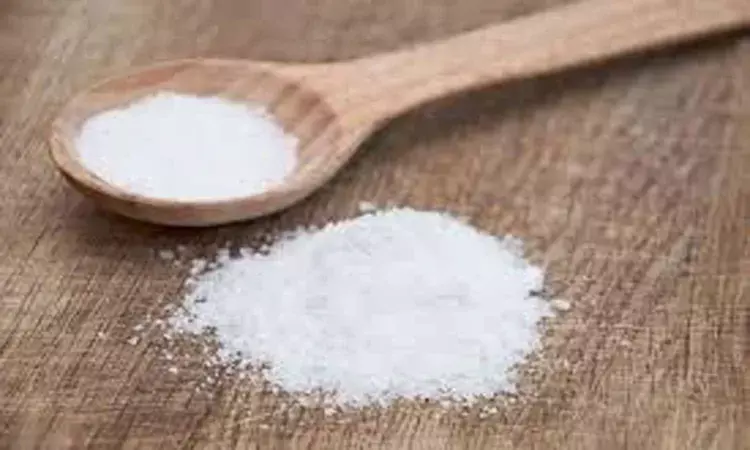- Home
- Medical news & Guidelines
- Anesthesiology
- Cardiology and CTVS
- Critical Care
- Dentistry
- Dermatology
- Diabetes and Endocrinology
- ENT
- Gastroenterology
- Medicine
- Nephrology
- Neurology
- Obstretics-Gynaecology
- Oncology
- Ophthalmology
- Orthopaedics
- Pediatrics-Neonatology
- Psychiatry
- Pulmonology
- Radiology
- Surgery
- Urology
- Laboratory Medicine
- Diet
- Nursing
- Paramedical
- Physiotherapy
- Health news
- Fact Check
- Bone Health Fact Check
- Brain Health Fact Check
- Cancer Related Fact Check
- Child Care Fact Check
- Dental and oral health fact check
- Diabetes and metabolic health fact check
- Diet and Nutrition Fact Check
- Eye and ENT Care Fact Check
- Fitness fact check
- Gut health fact check
- Heart health fact check
- Kidney health fact check
- Medical education fact check
- Men's health fact check
- Respiratory fact check
- Skin and hair care fact check
- Vaccine and Immunization fact check
- Women's health fact check
- AYUSH
- State News
- Andaman and Nicobar Islands
- Andhra Pradesh
- Arunachal Pradesh
- Assam
- Bihar
- Chandigarh
- Chattisgarh
- Dadra and Nagar Haveli
- Daman and Diu
- Delhi
- Goa
- Gujarat
- Haryana
- Himachal Pradesh
- Jammu & Kashmir
- Jharkhand
- Karnataka
- Kerala
- Ladakh
- Lakshadweep
- Madhya Pradesh
- Maharashtra
- Manipur
- Meghalaya
- Mizoram
- Nagaland
- Odisha
- Puducherry
- Punjab
- Rajasthan
- Sikkim
- Tamil Nadu
- Telangana
- Tripura
- Uttar Pradesh
- Uttrakhand
- West Bengal
- Medical Education
- Industry
Serum sodium at middle age associated with risk of developing HF- Good hydration prevents

Approximately 550,000 new cases are diagnosed in the U.S. each year. Congestive heart failure affects people of all ages, from children and young adults to the middle-aged and the elderly. Almost 1.4 million persons with heart failure are under 60 years of age. Heart failure is present in 2 percent of persons age 40 to 59. With increasing prevalence of heart failure (HF) owing to the ageing population, identification of modifiable risk factors is important.
In a mouse model, chronic hypohydration induced by lifelong water restriction promotes cardiac fibrosis. Hypohydration elevates serum sodium. Researchers evaluated the association of serum sodium at middle age as a measure of hydration habits with risk to develop HF.
The model found that middle age serum sodium above 142 mmol is a risk factor for left ventricular hypertrophy ( LVH) and HF. Maintaining good hydration throughout life may slow down decline in cardiac function and decrease prevalence of HF.
The findings of the study are published in European Heart Journal.
The results of the study were
• Data from Atherosclerosis Risk in Communities study with middle age enrolment (45–66 years) and 25 years of follow-up.
• Participants without water balance dysregulation were selected: serum sodium within normal range (135–146 mmol/L), not diabetic, not obese and free of HF at baseline (N = 11 814).
• In time-to-event analysis, HF risk was increased by 39% if middle age serum sodium exceeded 143 mmol/L corresponding to 1% body weight water deficit.
• In a retrospective case-control analysis performed on 70- to 90-year-old attendees of Visit 5 (N = 4961), serum sodium of 142.5–143 mmol/L was associated with 62% increase in odds of (LVH) diagnosis [odds ratio (OR) 1.62, 95% CI 1.03–2.55].
• Serum sodium above 143 mmol/L was associated with 107% increase in odds of LVH (OR 2.07, 95% CI 1.30–3.28) and 54% increase in odds of HF (OR 1.54, 95% CI 1.06–2.23).
• As a result, prevalence of HF and LVH was increased among 70- to 90-year-old participants with higher middle age serum sodium.
Researchers concluded "Middle age serum sodium above 142 mmol is a risk factor for LVH and HF. Maintaining good hydration throughout life may slow down decline in cardiac function and decrease prevalence of HF."
Reference: https://doi.org/10.1093/eurheartj/ehac138
Medical Dialogues consists of a team of passionate medical/scientific writers, led by doctors and healthcare researchers. Our team efforts to bring you updated and timely news about the important happenings of the medical and healthcare sector. Our editorial team can be reached at editorial@medicaldialogues.in.
Dr Kamal Kant Kohli-MBBS, DTCD- a chest specialist with more than 30 years of practice and a flair for writing clinical articles, Dr Kamal Kant Kohli joined Medical Dialogues as a Chief Editor of Medical News. Besides writing articles, as an editor, he proofreads and verifies all the medical content published on Medical Dialogues including those coming from journals, studies,medical conferences,guidelines etc. Email: drkohli@medicaldialogues.in. Contact no. 011-43720751


